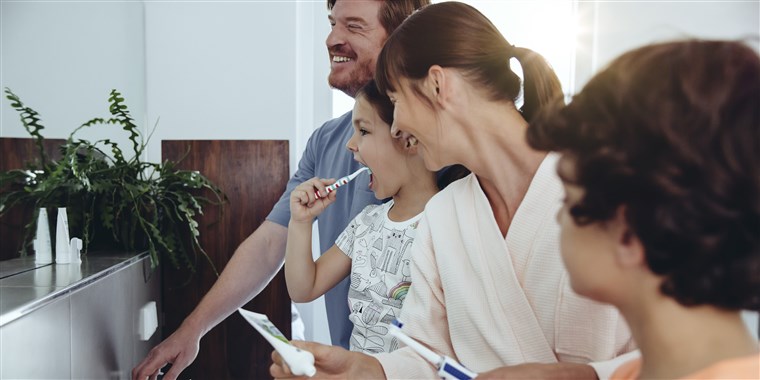
Let’s make your smile healthy & more beautiful
You’ll find a large selection of toothbrushes available, both manual and electric. It’s a good idea to choose one that:
- Soft-bristled brush is best for removing plaque and debris from your teeth.
- Small-headed brushes are preferable, since they can better reach all areas of the mouth, including hard-to-reach back teeth
- fits comfortably in your hand(non-slip grip or flexible neck)
Most important thing is brushing your teeth properly at least twice a day.
Adapting Toothbrushes for Special Healthcare Needs
If you have difficulty controlling hand, arm or shoulder movements, here are some ideas on adapting standard toothbrushes:
- Make the handle bulky with a tennis ball, sponge foam or bicycle grip
- Lengthen with a stick or rod
- Bend the handle of the toothbrush
- Attach to the hand or arm with elastic or Velcro straps or hand brace
- For those who have difficulty brushing or who have limited manual dexterity, try using an electric toothbrush
How to take care of Your Toothbrush
Don’t:
- Do not share your toothbrush or use someone else’s toothbrush
- Do not store in closed containers
Do:
- After brushing, rinse your toothbrush thoroughly with tap water and allow to air-dry
- Store standing upright without the heads touching , If it is near other toothbrushes
- Replace your toothbrush/head of electric toothbrush every three to four months or when the bristles look worn and bent
